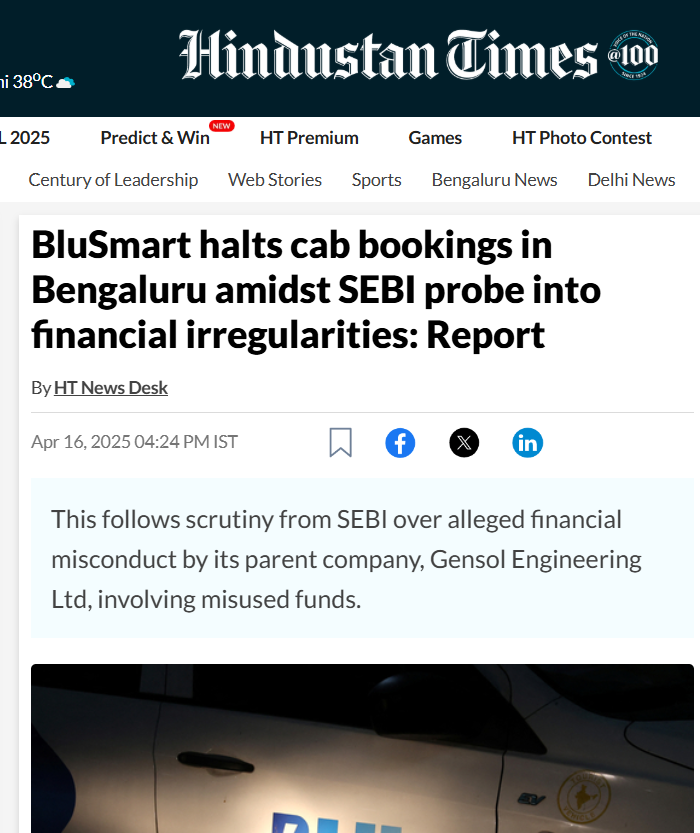February 20th 2024
I see the name of the driver on the app and it is clear, at once, that he is a Malayali. He arrives fifteen minutes before schedule – which used to be a Blusmart feature (not a bug) – and I walk up to the gate and request a few minutes to get ready. ‘Aren’t you from Kerala?’ I ask, for we Mallus tend to pop that question sooner than later. ‘Yes, sir,’ he replies, with an enthusiastic smile, ‘and I thought you were a Malayali too, from your name. Please take your time, we can leave fifteen minutes after schedule as well, not a problem.’ A cab driver saying that; doesn’t the surprise make your day?
As I get into the cab, his dignity and bearing are evident. He speaks fluent English, is courteous to a fault. After I tell him the time of my flight, he thanks me for booking the cab three hours earlier. He is at the fag end of a twelve-hour night shift and I feel deep sympathy for him (along with, of course, the hope that he is awake enough to drive a car).
So, we get chatting; the stories of mortal men and women – pedestrian tales of existence, resilience, connections and hope – are the most enthralling, aren’t they? Those beguiling encounters of comfort and dissonance offer so much for reflection, certainly as an alternative to reading the short-term, high-intensity feeds of transient inanity on the media on my phone (which I cannot do anyways as it makes me queasy in a moving vehicle).
I learn that he is a Bangalorean and has been a Blusmart driver for a couple of years and enjoys the experience. ‘I occasionally meet someone like you, sir, who speaks Malayalam and enjoys conversation, which is special (vishesham, in Malayalam).’ For two decades, he drove night buses to Mumbai – a twenty-hour journey – and rested for a few hours before driving back to Bangalore. A seven-hour sleep at night was reserved for one day a week and he had made a deal with the devil on that, but then he missed his wife. No kids, he says without my prompting. He begins to speak about his wife and then checks himself. I wonder why.
Education did not really interest him, which was a source of great stress for his well-educated dad. There was contrast too: his two siblings – a sis and a brother, both older to him – studied well and have done well in the Great Game. While on the airport flyover, he points out an utterly grotesque apartment-city (no other term will suffice in vehemence for this apparition) and says his brother, who is a techie in the US, has a four-bedroom apartment in there.
‘Yet, I am happy as a driver, no regrets’ he says, and there is a stubbornness, a sense of indignation in that tone which makes me feel that he is talking to himself, justifying, quieting the inner voice of dissent…..
An hour of conversation and we are on the final stretch to the terminal. ‘My wife is a Maharashtrian,’ he says, ‘and she has a physical disability. Ours was a marriage no one wanted to attend. Yet, today, my parents are deeply attached to her. She has a job too, but this income from driving keeps us going.’ He pauses. ‘She is everything to me.’
I can feel the emotion in the voice, sitting there in the back seat of a car driven by a stranger I will perhaps never see again. I hope my short reply, in words and tone, has been one with empathy. We complete the journey in silence.
As I step out of the car with my bag, he smiles with that now-familiar enthusiasm. ‘Please call me anytime if you need a car,’ he says, and I nod in assent, though we both don’t really mean it.
And, today, I think of his future.
And I am angry at the flagitious and greedy men who ran this company and have played with human lives.





